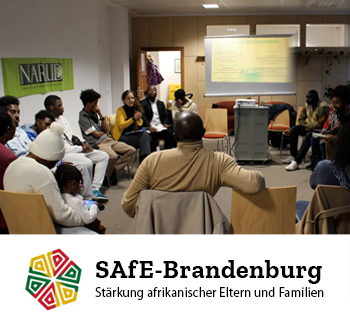Development Cooperation
In the field of development cooperation, NARUD e.V. advocates an improvement in the health and general supply infrastructure, education with a focus on professionalization, the strengthening of civil society and the reduction of poverty, currently predominantly in Cameroon. The migration experiences from different countries in Africa, which our members, the club management and large parts of our target groups bring with them in Germany, give the club insights into current situations and enable it to interpret and enable developments correctly. Due to the close and established cooperation with the Cameroonian organization:
ADDC (Assosacion pour le Développement Durable du Cameroun) – it is guaranteed that the project ideas always come from the target groups, the objectives are oriented towards local African perspectives and the measures are designed in such a way that they really bring sustainable effects.
At the same time, this type of project work provides insights that are often in contradiction to the assumptions widespread in Germany about the development conditions in Africa. On this basis, NARUD is involved in development policy committees and platforms in Germany and stimulates critical reflection there for a new understanding of truly partnership-based development cooperation. In terms of the sustainable development goals, all countries are to be understood as developing countries.
The insights, principles of action and examples of good practice gained in development projects are also incorporated into the development education work of NARUD e.V. in Germany.
The more recent projects take place at the intersection of urban and rural life. Together with ADDC and other local partners, we are improving the general and vocational training infrastructure, as well as drinking water and health care. We always pursue the goals of creating jobs, building knowledge and awareness in the population and empowering the partially marginalized citizen groups to participate more in civil society. Interfaces to the administration are also established.
The projects are mostly supplemented by information and awareness-raising campaigns, including over the radio. The project achievements will continue to be monitored and their reach expanded step by step.
As a result, a total of six school buildings have been built in recent years, including a vocational school with 200 training places. The village of Koupa-Matapit is supplied with drinking water and local specialists are trained in self-management and maintenance. A medical laboratory has been set up in Foumban.


